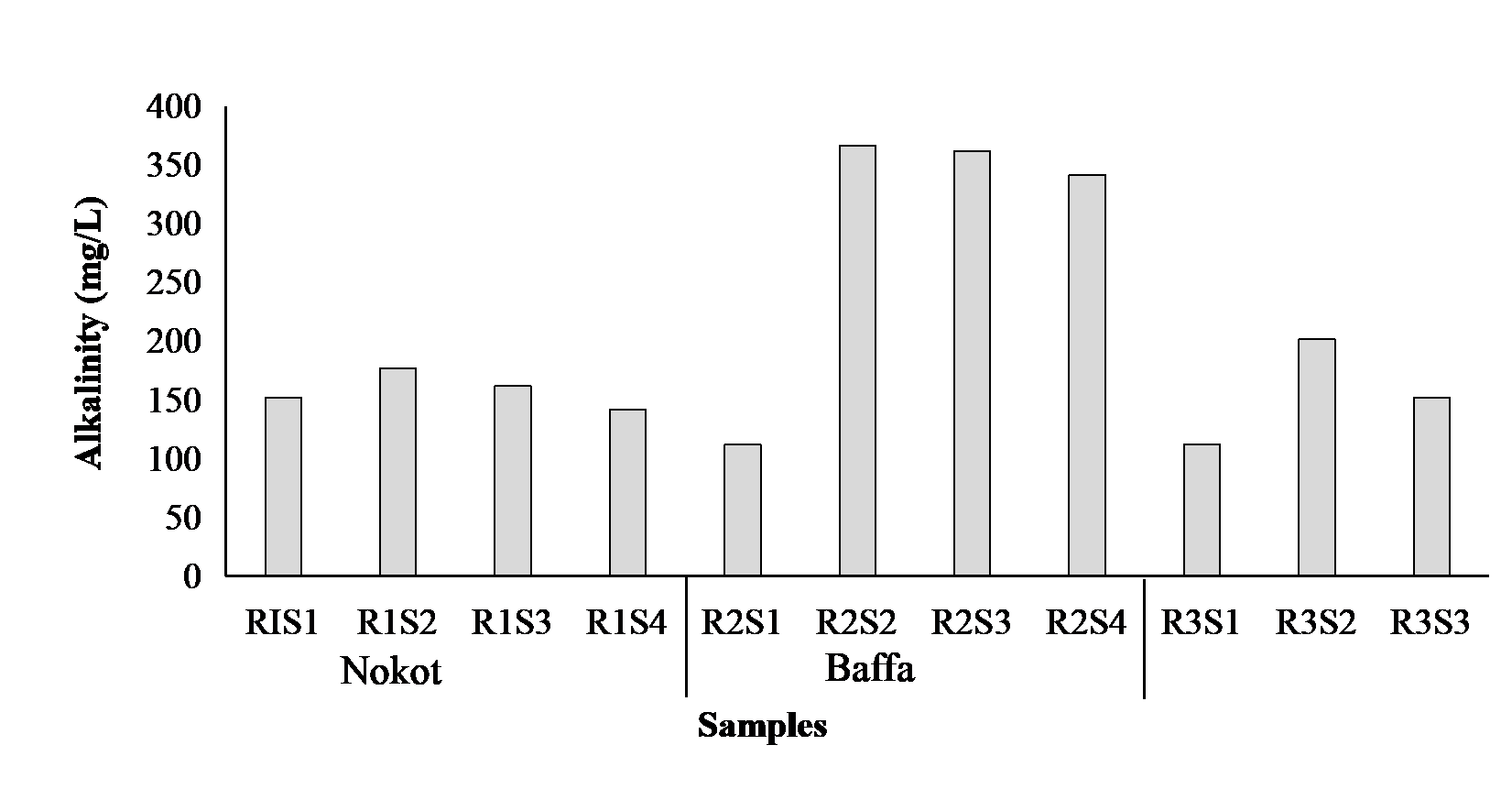Impacts of Climate Variability and Urban Expansion on Groundwater Systems in Mansehra
Keywords:
Climate change, Groundwater Quality, GroundwaterAbstract
Groundwater serves as the principal source of domestic water supply in Mansehra District, Khyber Pakhtunkhwa, Pakistan. However, rapid urbanization and climate change have increasingly impacted groundwater quality and recharge dynamics in the region. This study investigates groundwater quality and identifies potential recharge sources under shifting environmental conditions. A total of eleven water samples were collected from wells, rivers, and surface channels across five distance-based zones (0–200 m, 201–400 m, 401–600 m, 601–800 m, and 801–1000 m) relative to the nearest river. The samples were taken in sterile, dry containers and were transported within 24 hours to the Pakistan Council of Research in Water Resources (PCRWR), Islamabad, for detailed physicochemical analysis. Parameters measured included pH, electrical conductivity (EC), total hardness, alkalinity, turbidity, calcium (Ca), and potassium (K). The findings show extensive groundwater quality deterioration in areas subject to high urban activity and climatic fluctuation. More specifically, samples from Baffa showed higher hardness, Ca, and K levels above WHO allowable limits, indicating contamination potential. On the other hand, samples from Nokot and Ichria mostly met WHO standards, with turbidity being the only parameter of concern. Comparison of analyses of well, river, and pond samples revealed rivers and surface water bodies as the preeminent sources of groundwater recharge. The findings highlight the imperative need for sustainable groundwater management practices to mitigate the adverse impacts of anthropogenic stresses and climate change in the Mansehra Basin.
References
K. Priyan, “Issues and Challenges of Groundwater and Surface Water Management in Semi-Arid Regions,” Groundw. Resour. Dev. Plan. Semi-Arid Reg., pp. 1–17, May 2021, doi: 10.1007/978-3-030-68124-1_1.
Z. A. B. and J. K. Das, “Climate Change and Water-Related Challenges in Pakistan,” Clim. Chang. Water-Related Challenges Pakistan Tangible Solut., 2025, [Online]. Available: https://www.cambridgescholars.com/resources/pdfs/978-1-0364-4073-2-sample.pdf
M. Brindha, K., & Schneider, “Impact of Urbanization on Groundwater Quality,” GIS geostatistical Tech. Groundw. Sci., 2019, doi: 10.1016/B978-0-12-815413-7.00013-4.
A. Niaz et al., “Geoelectrical and hydrochemical assessment of groundwater contamination risks: a case study of aquifer vulnerability in Mansehra, Pakistan,” Carbonates and Evaporites, vol. 40, no. 2, pp. 1–23, Jun. 2025, doi: 10.1007/S13146-025-01095-Z/METRICS.
Y. L. Ryan Haggerty, Jianxin Sun, Hongfeng Yu, “Application of machine learning in groundwater quality modeling - A comprehensive review,” Water Res., vol. 233, p. 119745, 2023, doi: https://doi.org/10.1016/j.watres.2023.119745.
WHO, “Guidelines for drinking-water quality, 4th edition, incorporating the 1st addendum. Geneva: World Health Organization. Geneva, Switzerland,” World Heal. Organ., 2017, Accessed: Jul. 24, 2025. [Online]. Available: https://www.who.int/publications/i/item/9789241549950
S. A. K. & T. K. Shah Jehan, Ihsan Ullah, Sardar Khan, Said Muhammad, “Evaluation of the Swat River, Northern Pakistan, water quality using multivariate statistical techniques and water quality index (WQI) model,” Environ. Sci. Pollut. Res., vol. 27, pp. 38545–38558, 2020, doi: https://doi.org/10.1007/s11356-020-09688-y.
T. Shah, “The groundwater economy of south asia: an assessment of size, significance, and socio-ecological impacts,” Kan. JL Pub. Pol’y, vol. 15, no. 405, 2005.
R. K. Love Kumar, “Water Quality Assessment and Monitoring in Pakistan: A Comprehensive Review,” Sustainability, vol. 15, no. 7, p. 6246, 2023, doi: https://doi.org/10.3390/su15076246.
M. S. Islam and S. M. M. H. Majumder, “Alkalinity and Hardness of Natural Waters in Chittagong City of Bangladesh,” Int. J. Sci. Bus., vol. 4, no. 1, pp. 137–150, 2020, Accessed: Jul. 24, 2025. [Online]. Available: https://ideas.repec.org/a/aif/journl/v4y2020i1p137-150.html
A. H. Rahman, A., Hassan, M. U., & Shah, “Influence of land use and agricultural inputs on groundwater quality in peri-urban Pakistan,” J. Water Health, vol. 21, no. 1, pp. 30–42, 2023.
H. F. Iram Naz, “Integrated Geospatial and Geostatistical Multi-Criteria Evaluation of Urban Groundwater Quality Using Water Quality Indices,” Water, vol. 16, no. 17, p. 2549, 2024, doi: https://doi.org/10.3390/w16172549.

Downloads
Published
How to Cite
Issue
Section
License
Copyright (c) 2025 50sea

This work is licensed under a Creative Commons Attribution 4.0 International License.




















